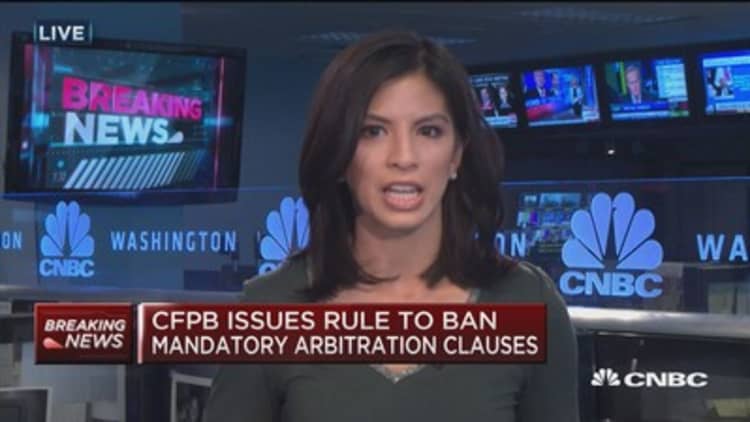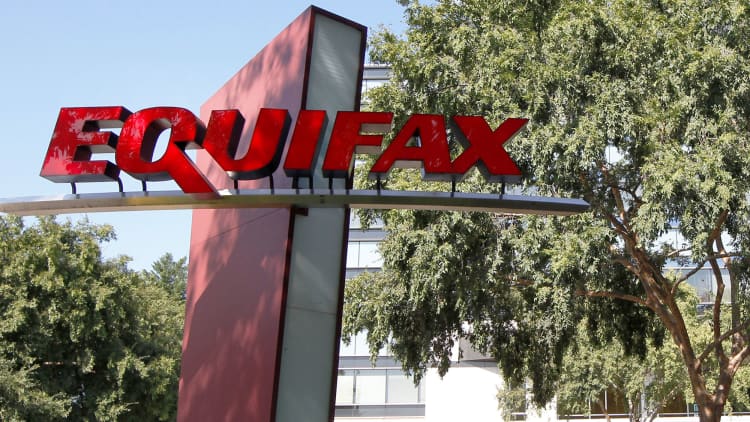
A new federal rule that took effect Sept. 18 makes it easier for customers to band together and sue financial firms.
Consumers, however, may never get to use it.
That's because a congressional resolution to kill the measure is awaiting action in the Senate. And despite the recent uproar over the inclusion of a mandatory arbitration clause by credit-reporting company Equifax in its free credit-monitoring service agreement — which the company subsequently removed — there's no indication the legislative block won't happen.
"I don't think the Equifax brouhaha is going to move the needle on whether the resolution is going to pass or not," said Alan Kaplinsky, a partner with national law firm Ballard Spahr. "It still could go either way."
The rule, approved by the Consumer Financial Protection Bureau in July, generally prevents financial firms like credit-card companies and banks from including clauses in agreements that require customers to settle complaints through arbitration, thereby waiving their right to join a class-action lawsuit. While it takes effect today, only new agreements after March 18, 2018, would reflect the change.
That, of course, assumes Senate Republicans cannot find the votes to support the resolution, which requires only a majority vote (versus bills that require 60 votes to pass). The House passed a resolution to kill it in July, saying it serves the interests of trial lawyers, not consumers.
The repeal measure is in play due to the Congressional Review Act, which gives lawmakers 60 legislative days to overturn a new rule. That would put the Senate deadline to vote sometime in early November, Kaplinsky said.
"I think it has a better chance of being passed if it gets put to a vote in the near future instead of waiting," Kaplinsky said.
The Senate Banking Committee, where the resolution is sitting, is chaired by Sen. Mike Crapo, R-Idaho, who has expressed support for the resolution in the past. His office did not respond to a request for comment.
I don't think the Equifax brouhaha is going to move the needle on whether the resolution is going to pass or not.Alan KaplinskyPartner with national law firm Ballard Spahr
The issue was front and center for Equifax after the revelation that the personal information — names, birth dates, Social Security numbers, addresses and some driver's license numbers — of potentially 143 million consumers was part of a massive data breach.
Although the company ended up removing a mandatory clause from the free credit-monitoring service it was offering consumers, the hullabaloo provided ammunition for advocates of the rule.
If it had been fully in effect when Equifax offered consumers its free service for a year, the company's agreement would have been subject to the ban on mandatory-arbitration clauses.
Mandatory-arbitration clauses already are prohibited in mortgage contracts, per the 2010 Dodd-Frank financial reform act, which also created the Consumer Financial Protection Bureau.
Senate Banking Committee member Sherrod Brown, a Democrat from Ohio, said in a statement that "the fact that it took a public shaming to force Equifax to drop forced arbitration from [its agreement] is further proof why the Consumer Financial Protection Bureau's rule is needed."
WATCH: There are 23 class action lawsuits and growing against Equifax: Tech lawyer



